This post may contains affiliate links. Read our full disclosure here.
Remember when your weekends had time for those little passions that made your heart skip? If you’re staring at dust-covered art supplies or sporting equipment pushed to the back of the closet, you’re not alone. Learning how to rediscover your hobbies isn’t about adding another task to your already packed schedule—it’s about reclaiming pieces of yourself that got lost in the shuffle of adult responsibilities. Whether it’s been months or years, those forgotten passions are still part of you, waiting patiently for your return.
The magic of rediscovering your hobbies lies in the permission to be a beginner again. No pressure, no deadlines, no expectations—just pure enjoyment. Think of it as opening a window in a stuffy room; suddenly, there’s fresh air and new possibilities. With a glass of wine in hand and an open evening ahead, let’s talk about how to breathe life back into those neglected interests that once brought you so much joy.
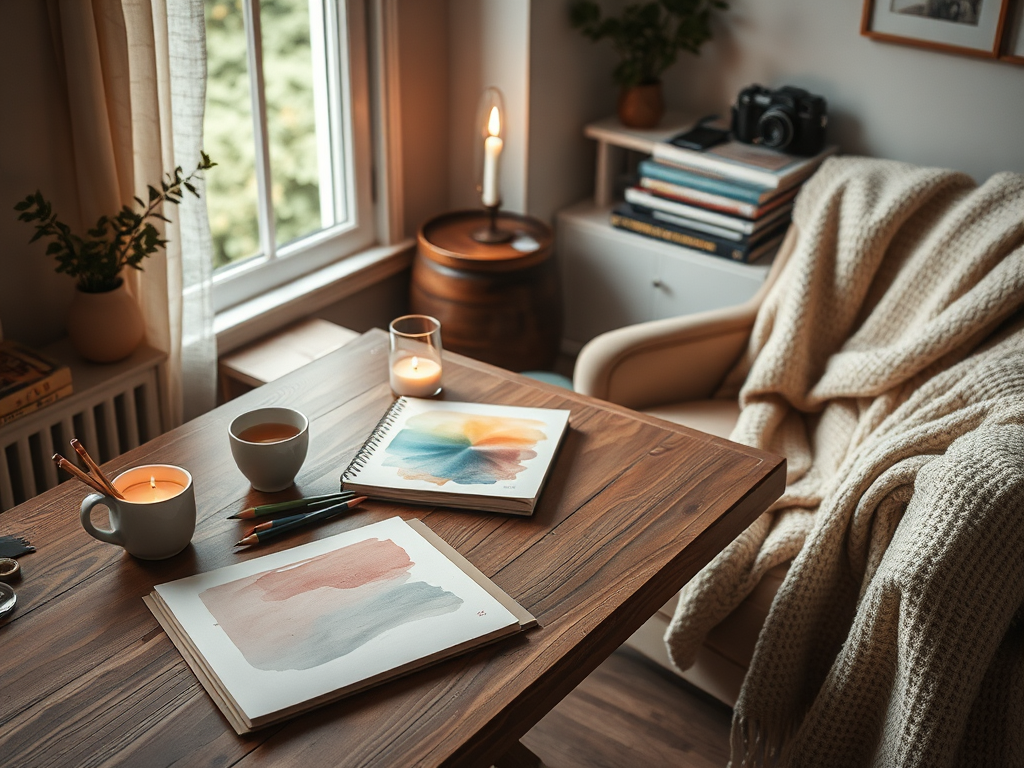
Why We Lose Touch with Our Hobbies
- The daily grind steals our creative energy
- Perfectionism makes starting again feel impossible
- Digital distractions fill our limited free time
Remember that watercolor set you bought with such excitement? Or the guitar that’s been collecting dust in the corner? We don’t abandon our hobbies because we stop loving them. Life simply gets overwhelmingly loud, drowning out the quiet call of our passions with deadlines, responsibilities, and exhaustion.
Between back-to-back meetings, family obligations, and the mental load of running a household, our creative energy gets zapped. By the time we might have a spare moment, scrolling mindlessly through social media feels easier than summoning the energy to disconnect from technology and engage with a hobby that requires focus.
What’s worse, many of us fall into the perfectionism trap. “If I can’t do it as well as I used to, why bother?” This all-or-nothing thinking keeps us stuck. The truth? Your hobbies aren’t judging your absence. They’re simply waiting for your return, no matter how rusty you might be.
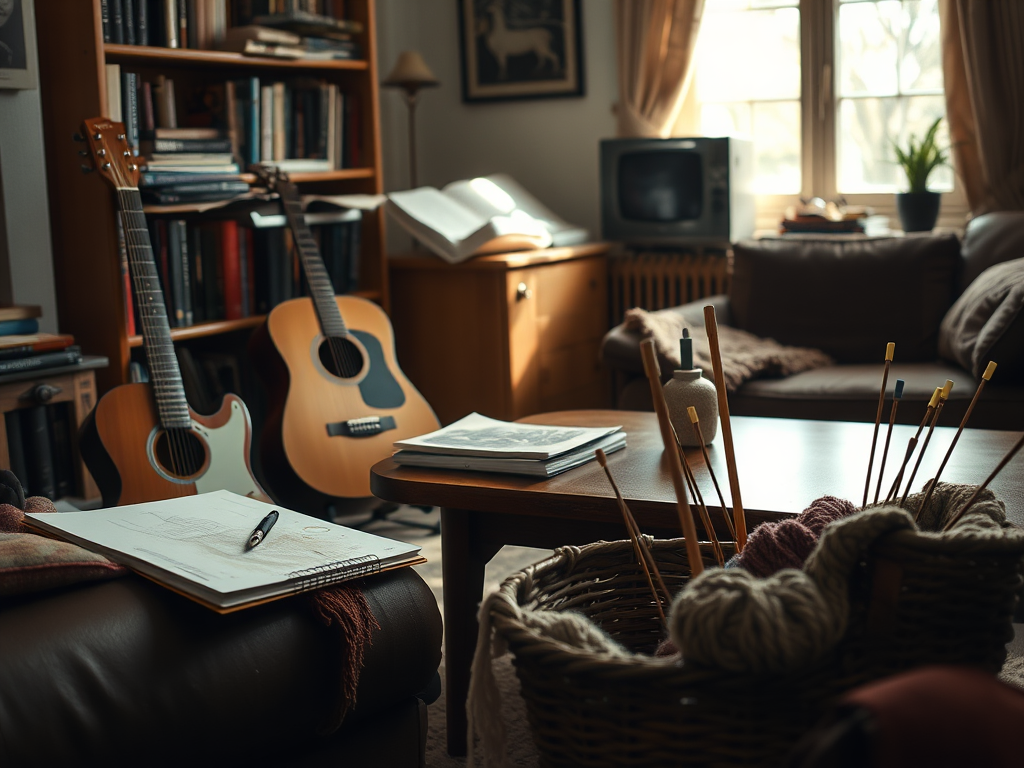
“We don’t stop playing because we grow old; we grow old because we stop playing.” — George Bernard Shaw
Spotting the Hobbies That Still Light You Up
- Reflect on childhood joys and pre-adulting passions
- Notice what catches your attention in daily life
- Create a no-pressure hobby wishlist
Before the mortgage payments and career ladder climbing, what made you lose track of time? The hobbies that deserve your precious free hours now are often connected to what captivated you before life got complicated. Think back to what had you staying up late, forgetting to eat, or excitedly telling friends about your progress.
Pay attention to what makes you pause during your day. Do you linger over beautiful photography in magazines? Save recipes you never make? Stop to admire gardens in your neighborhood? These small moments of interest are breadcrumbs leading back to potential passions worth exploring.
Try creating a simple hobby wishlist with three columns: “Loved Before,” “Curious About,” and “Sounds Fun.” Don’t overthink it—this isn’t a commitment, just a conversation with yourself. Sometimes seeing your interests laid out makes patterns emerge that weren’t obvious before. Maybe that wine and cheese night you enjoyed hosting reveals a deeper interest in culinary arts or entertaining.
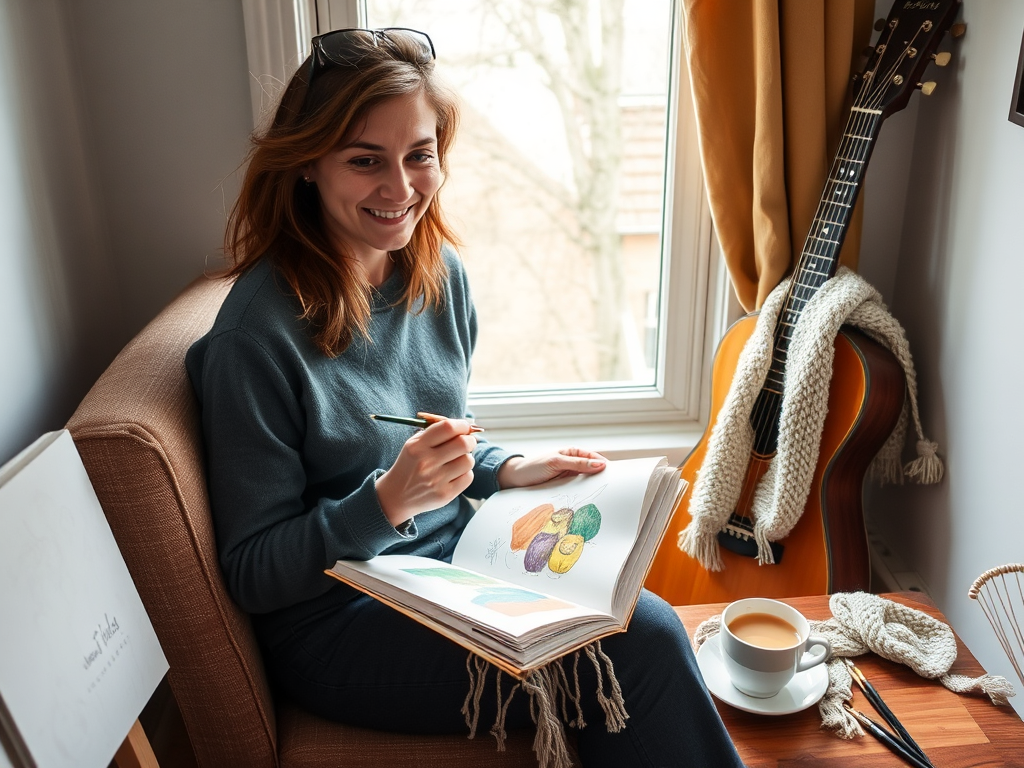
Making Space for Play Without Pressure
- Start with ridiculously small time blocks
- Embrace the mess of being a beginner again
- Focus on the process, not the outcome
The quickest way to kill your rediscovered hobby enthusiasm is to expect mastery immediately. Remember, you’re not picking up exactly where you left off—and that’s perfectly okay. Give yourself permission to be gloriously terrible at something you once excelled in. The joy comes back faster than the skill, I promise.
Instead of declaring, “I’m going to paint for three hours every Saturday,” try “I’ll put brush to paper for 10 minutes this week.” These micro-commitments bypass your brain’s resistance and overwhelm. They’re so small they almost seem silly—which is exactly the point. You can always do more if you’re feeling it, but the low bar makes starting possible.
Remove all metrics of success except one: Did you show up? That’s it. You don’t need to produce anything worth sharing on social media. The goal isn’t a finished project—it’s reconnecting with the feeling of doing something purely because it lights you up. When I started knitting again after years away, my first scarf looked like it had been attacked by angry cats. But the process of creating it brought me more joy than the perfect projects I’d stressed over before.
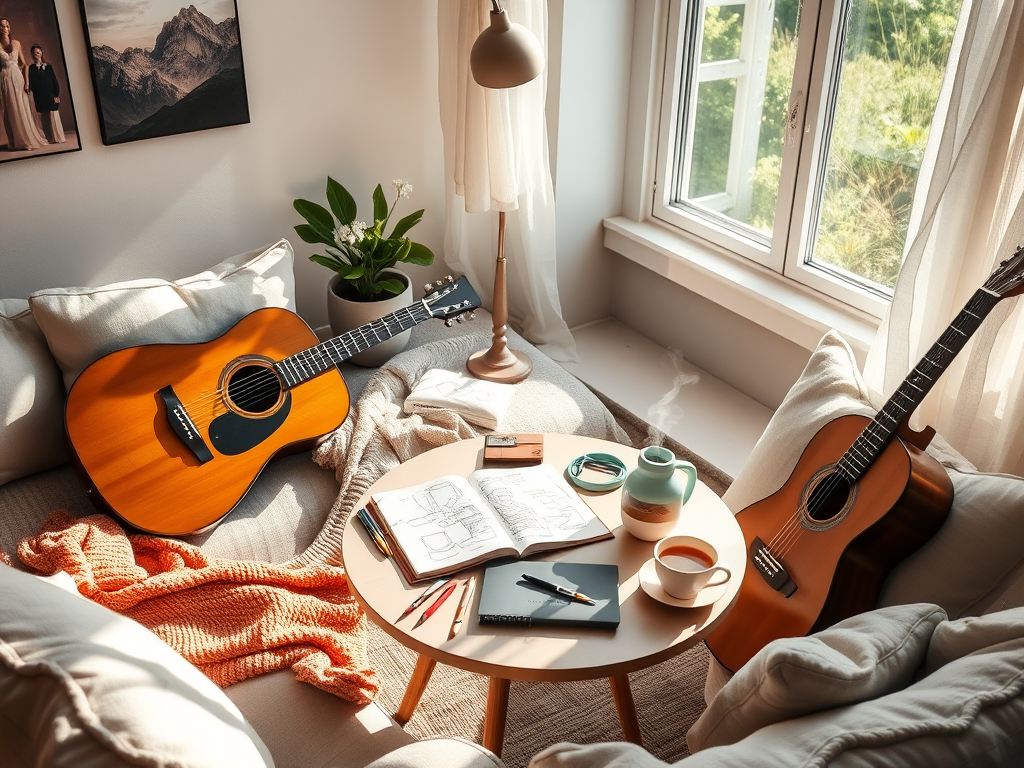
Creating a Ritual Around Your Hobby Time
- Design a mini-environment that signals “hobby time”
- Protect your creative sessions like important appointments
- Add sensory elements that make the experience special
Your hobby deserves more than leftover energy and “if I have time” status. Instead, create a simple consistent ritual that signals to your brain: this is special time. Maybe it’s Tuesday evenings with a specific playlist, Saturday mornings with your favorite coffee, or Sunday afternoons with a glass of wine that becomes your creative trigger.
My painting sessions transformed when I stopped trying to squeeze them in between laundry loads. Now I pour a nice glass of red wine, light a candle, put on instrumental music, and suddenly my apartment becomes a little creative sanctuary. The ritual itself becomes something to look forward to, even before the activity begins.
Defend this time like you would any other important commitment. Turn off notifications, close the door if possible, and communicate boundaries to the people you live with. Even 30 minutes of uninterrupted focus feels luxurious when it’s protected time. For those with kids or demanding schedules, consider trading hobby time with a partner or friend—you watch their kids while they pursue their passion, then switch.
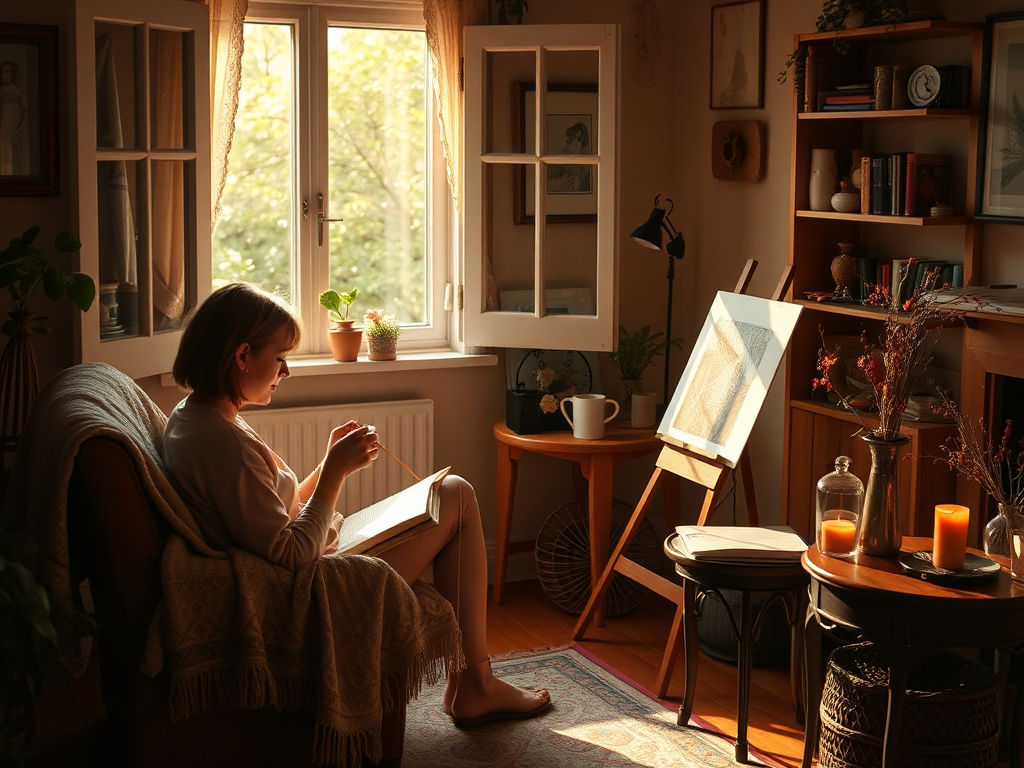
Reconnecting with Community or Inspiration
- Find your hobby tribe online or locally
- Use social media intentionally for inspiration
- Create accountability through shared experiences
Hobbies flourish in community. Finding others who share your passion—whether through local workshops, online forums, or even one supportive friend—can reignite your enthusiasm when motivation wanes. The shared experience creates momentum that’s difficult to maintain solo.
Social media can be both enemy and ally in your hobby journey. Used mindlessly, it steals time you could spend creating. Used intentionally, it connects you with inspiration and like-minded hobbyists. Follow accounts that showcase the joy of your hobby, not just the polished results that might intimidate you back into inaction.
Consider organizing a casual girls’ night in where everyone brings their creative project. Not only does this build accountability, but it transforms your hobby into a social experience. My monthly crafting circle has become the highlight of my social calendar—we sip wine, work on individual projects, and celebrate each small win together.
Don’t underestimate the power of courses or workshops to jumpstart your dormant skills. A beginner class can rebuild confidence and provide structure when you’re feeling rusty. Many community centers offer affordable options, or you might find online courses that fit your schedule. The guided environment eliminates decision fatigue and provides clear next steps.
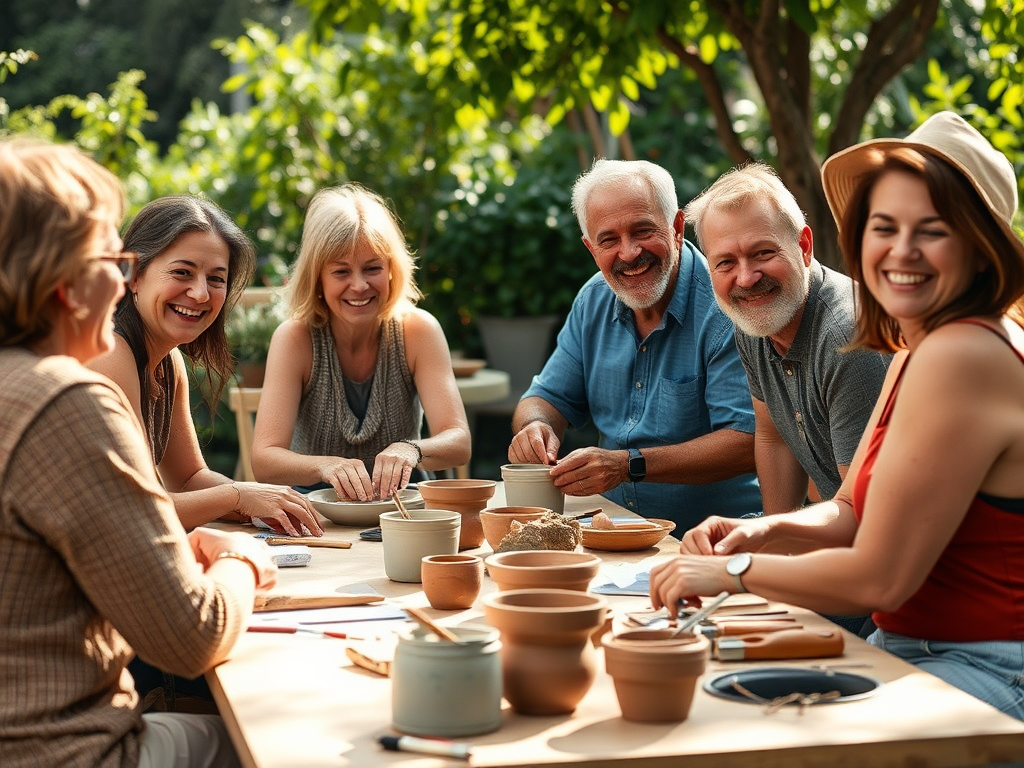
What If Your Hobbies Change? That’s Okay Too
- Your evolving interests reflect personal growth
- Allow yourself to explore without commitment
- Release the guilt of abandoning former passions
Sometimes when we rediscover old hobbies, we’re surprised to find they don’t captivate us like they once did. That doesn’t mean you’ve failed—it means you’ve grown and changed, which is something to celebrate! The photography that consumed your college years might feel constraining now, while gardening suddenly speaks to your soul.
Give yourself permission to explore new territories. Sampling different hobbies isn’t being flaky—it’s being curious. You might find that your interests have shifted with your life stage or circumstances. The high-energy rock climbing of your twenties might evolve into the meditative practice of bonsai cultivation in your thirties.
Release any guilt about outgrowing former passions. Those hobbies served their purpose in that season of your life. They taught you skills, provided joy, and shaped who you are today. Now they’re making space for new experiences that match who you’re becoming.
Consider a hobby “tasting menu” approach—try different activities in small doses before committing to any single one. Take a one-off wine tasting class, rent equipment for outdoor adventures, or borrow supplies from friends before investing heavily. This low-pressure sampling helps you discover what truly resonates with your current self.
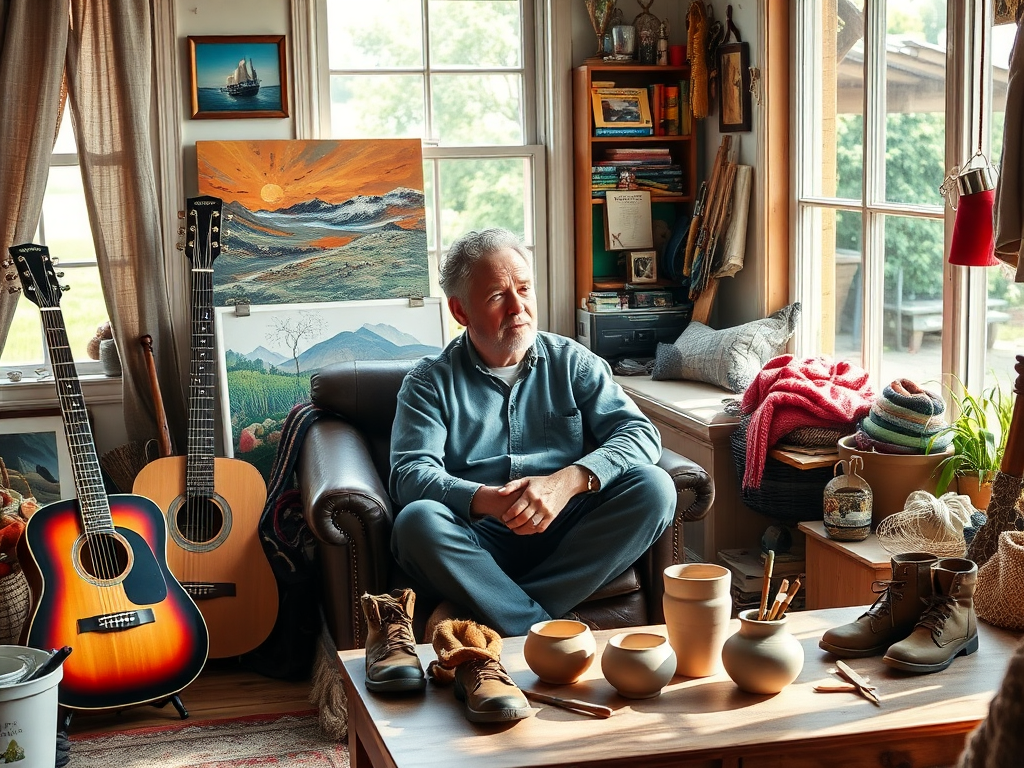
The Joy of Rediscovering Your Hobbies
- Focus on progress, not perfection
- Document your journey with compassion
- Celebrate small victories along the way
The greatest joy in rediscovering your hobbies isn’t reaching expert status—it’s in the small moments of flow where time slips away and you’re fully present. These pockets of immersive enjoyment are precious mental health breaks in our distraction-filled lives. They’re worth protecting and prioritizing, even when progress feels slow.
Consider keeping a simple journal of your hobby journey—not to track achievements, but to notice moments of satisfaction. “Today I played three chords without stopping” or “Mixed the perfect shade of blue” might seem trivial, but these small victories build momentum. Looking back on these notes months later reveals progress that’s often invisible in the day-to-day.
Remember that creativity isn’t a competition. Comparison is the fastest way to drain joy from your hobby renaissance. Your journey back to painting, guitar playing, or marathon running is uniquely yours—complete with detours, setbacks, and unexpected discoveries that make the experience rich and personal.
The process of rediscovering your hobbies is itself a form of self-care. It’s about reclaiming parts of yourself that got pushed aside in the rush of responsibility. Each minute spent engaged in something you love is an investment in your well-being that pays dividends far beyond the activity itself.
So grab that dusty guitar, pull out those gardening gloves, or dust off that camera. Your hobbies have been waiting patiently, and they don’t care how long you’ve been away. They’re just happy you’ve come back home to them. The journey of rediscovering your hobbies isn’t about becoming an expert—it’s about becoming more fully yourself again.




